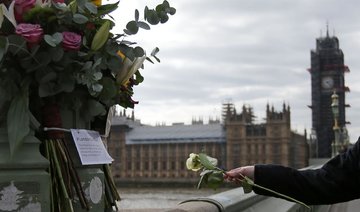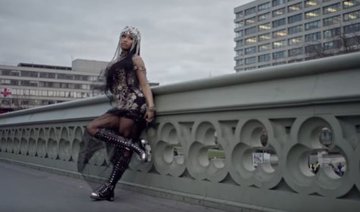MANILA: The Philippines will begin easing coronavirus restrictions in areas of the country except the capital Manila and two other densely populated regions, which will remain in lockdown for at least another two weeks.
At a virtual press briefing on Tuesday, presidential spokesperson Harry Roque said that a modified quarantine will replace the total lockdown imposed across Luzon island on March 16 to limit the spread of the deadly disease.
“It is a transition phase, and we envision that after one month we will all transition to a general quarantine,” Roque said.
The modified quarantine will allow day-to-day operations at government offices, and some manufacturing and processing plants, with a maximum of 50 percent of the workforce. However, schools will remain closed.
The move is part of the government’s efforts to restart the economy, which has suffered huge losses since President Rodrigo Duterte placed Luzon under lockdown.
“There is a need to balance biosafety and the economy,” Roque said. “If no economic interventions are applied, the consequences will be more damaging than the effect of the coronavirus,” Roque said.
The decision to ease restrictions was taken during Duterte’s meeting with a task force overseeing the fight against coronavirus on Monday night.
Duterte agreed to continue the lockdown in Manila, neighboring Laguna province and Cebu City in the Visayas — three high-risk areas — until May 31.
Moderate-risk areas will be placed under a general quarantine until the end of the month, while restrictions will be lifted in low-risk areas such as the Bangsamoro Autonomous Region in Muslim Mindanao.
The general quarantine, with more relaxed measures, allows the operation of government offices and industries with a maximum 75 percent workforce, limited transport services to support government and private enterprises, and flexible learning arrangements for students.
Roque said that in relaxing quarantine measures, the government was following the World Health Organization’s recommendations to prevent a second wave of infections.
Meanwhile, Carlito Galvez, Jr., chief of the national task force fighting the coronavirus, said that “in the absence of a vaccine, all we can do is prevent and contain it, and mitigate its impact.”
“The government cannot endure the (total lockdown) for an extended period as its resources are minimal,” he said. “It has to balance public health and the economy.”
In a recorded address to the nation on Tuesday, Duterte reiterated his call for people to adhere to anti-virus measures, adding that the lifting of the quarantine “does not mean the public will be safe from the highly contagious coronavirus.”
“The government’s approach in easing restrictions is gradual because we cannot afford a second or third wave (of infection),” he said.
























